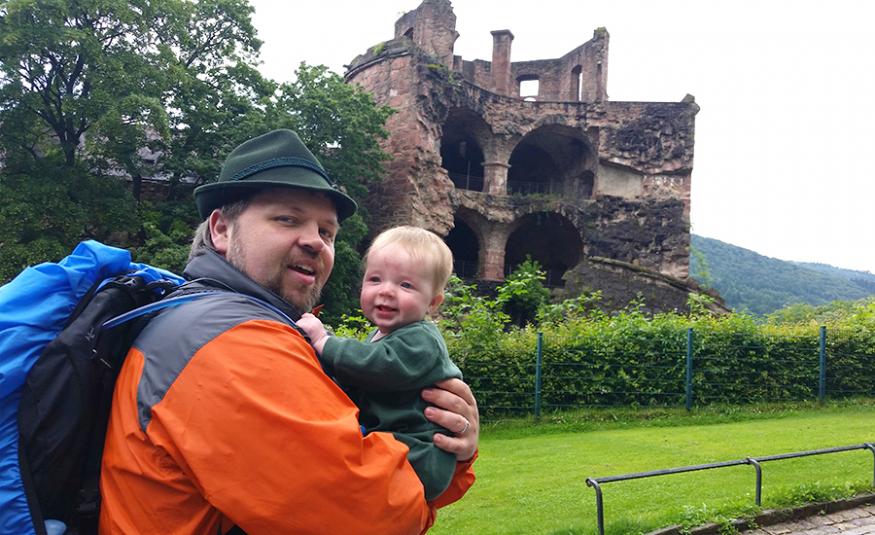
Five Questions: Dr. Joshua Dyer
Five Questions is a series of profiles of people at Augustana College. Contact sharenews@augustana.edu if you know someone you’d like to respond to five questions.
What is your favorite topic to teach and why?
Probably relativity. It’s sort of mind-blowing for people who have never studied it before. It’s really bizarre. And yet the math is not that complicated, so we spend a lot of time focusing on the concepts. It usually comes up in my “History of Physics and Engineering in Central Europe” and “Modern Physics” classes.
Which scientist, dead or alive, would you like to meet? Why?
I’d have to go with Einstein. He’s brilliant, obviously. But it would be interesting to talk to him about 1905. In that year, he published four papers. Each of them on their own should be earth-shattering. One was about the photoelectric effect, for which he won the Nobel Prize. His prize has nothing to do with what he is best known for, E = mc2. And yet, he’s humble. The interviews and speeches he gave demonstrate this. At the same time, he was really outspoken. He was a pacifist, against war in any form. He was asked to be the president of Israel and turned it down. He faced persecution for being Jewish, both from the Nazi regime and the scientific community. A lot of people totally discredited his work in relativity, simply because he was Jewish. So, he’s an interesting character—scientifically, for sure, but socially, as well.
Describe the kind of student who does well in your classes.
Someone who is engaged. Someone who wants to learn, is willing to work hard and asks me questions when they don’t understand. If a student is willing to try, I’m willing to explain things and work at it with them.
How did you discover your love of physics?
I’ve always enjoyed science, but my high school physics teacher was the one who steered me toward physics and engineering. When I struggled to accept a concept, he would set up an experiment in two minutes and show me. He was always out in the hallway after school, developing a new experiment or demonstration for class and figuring out new things. I can remember being in a play and running lines outside the theatre. Suddenly, we heard this noise, and there he was, floating by on a hovercraft that he had built. His energy and enthusiasm were overwhelming, fun and infectious.
Every two years, the engineering-physics and music departments come together during a study-abroad program in Germany, Austria and Switzerland. What do you hope students take away from this experience?
This summer, I’ll be working with Dr. Samantha Keehn in music. We’ll go to the Beethoven House in Bonn, the location of the Wagner music festival in Bayreuth, the German National Museum in Nürnberg, the BMW Factory and Museum and the Deutsches Museum. We’ll also visit Salzburg to pick up the Mozart, see the Einstein House and Museum in Bern and study solar technology in Freiburg (im Breisgau). So we’ll keep crossing back and forth between science and music.
In the classes, it all fuses together. I hope this experience is a stepping-stone for students to become world citizens. When the trip is all said and done, I want them to travel in the future. There are things to see all over the world.
By Rachel Reiter ’18, Augustana Writers Bureau
